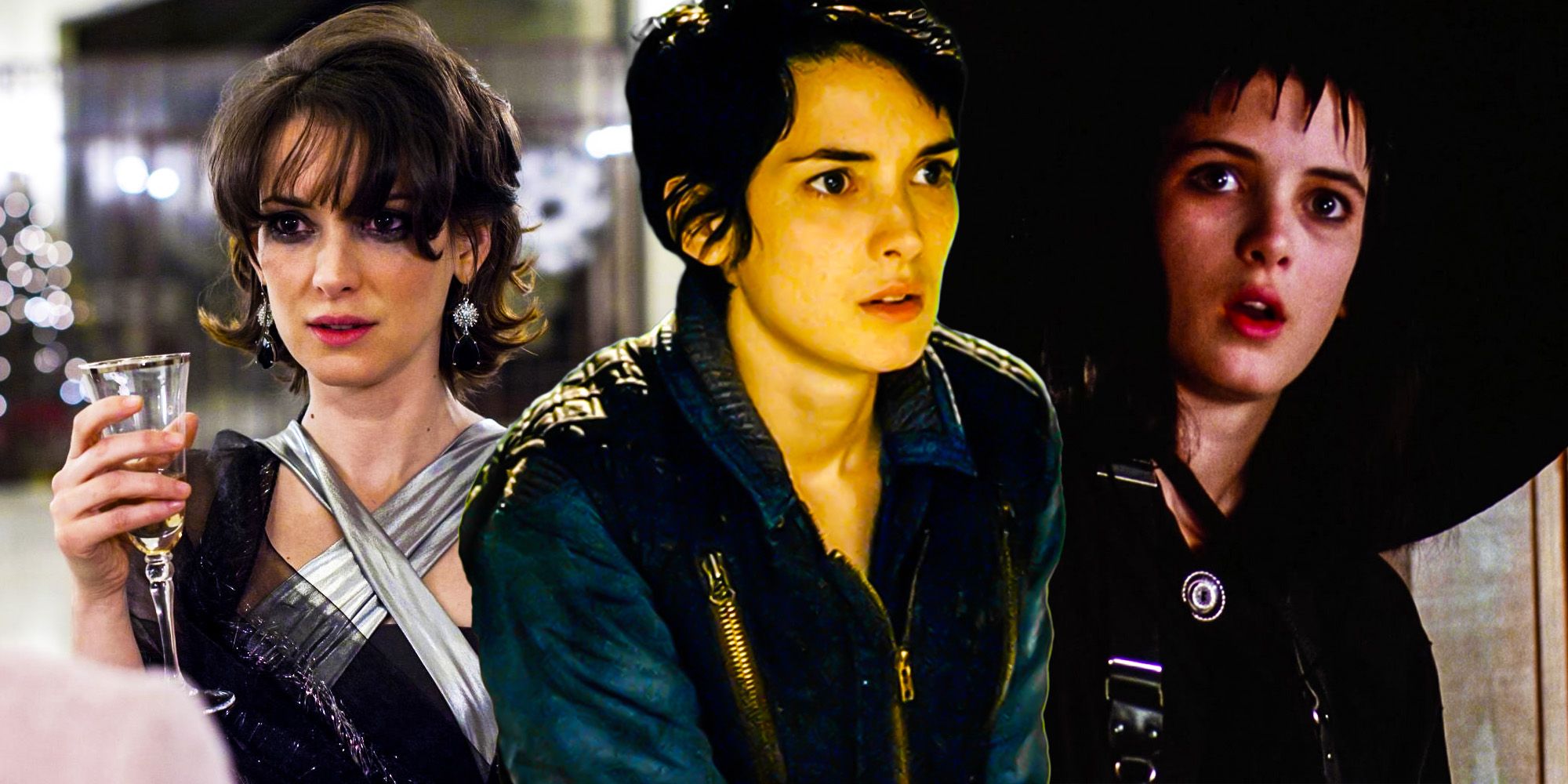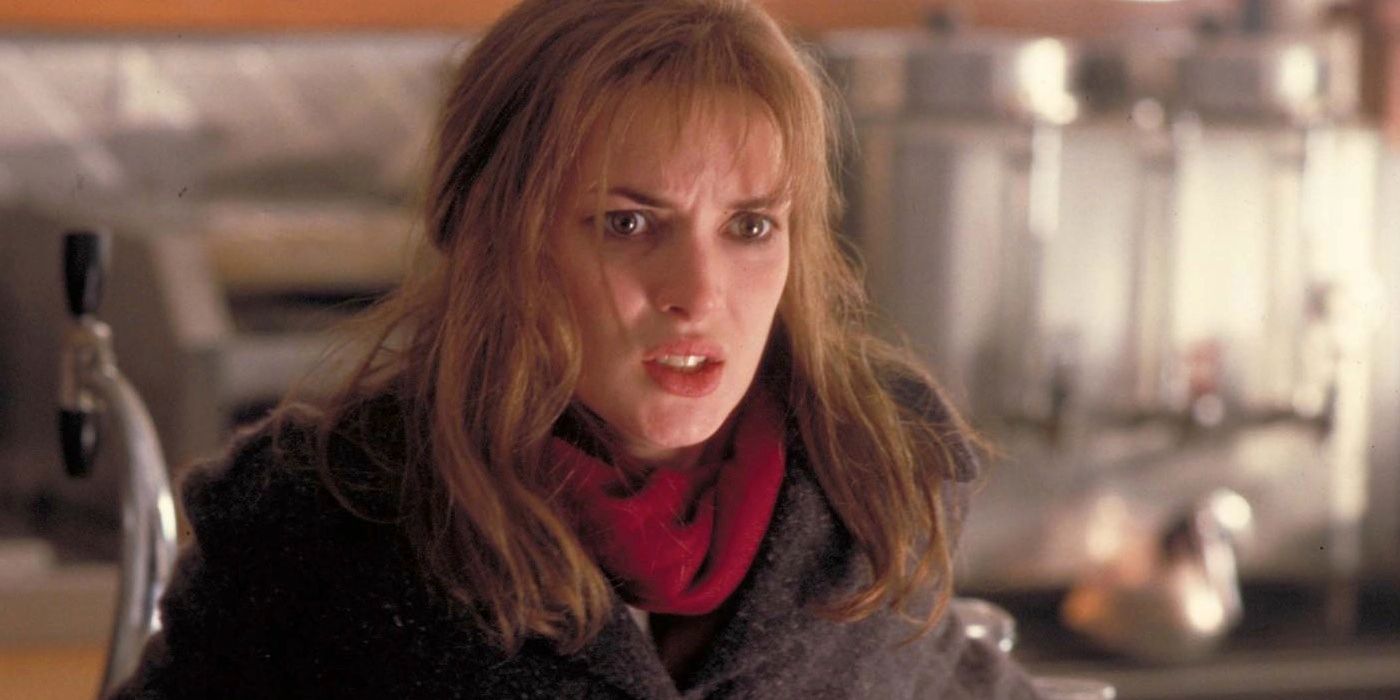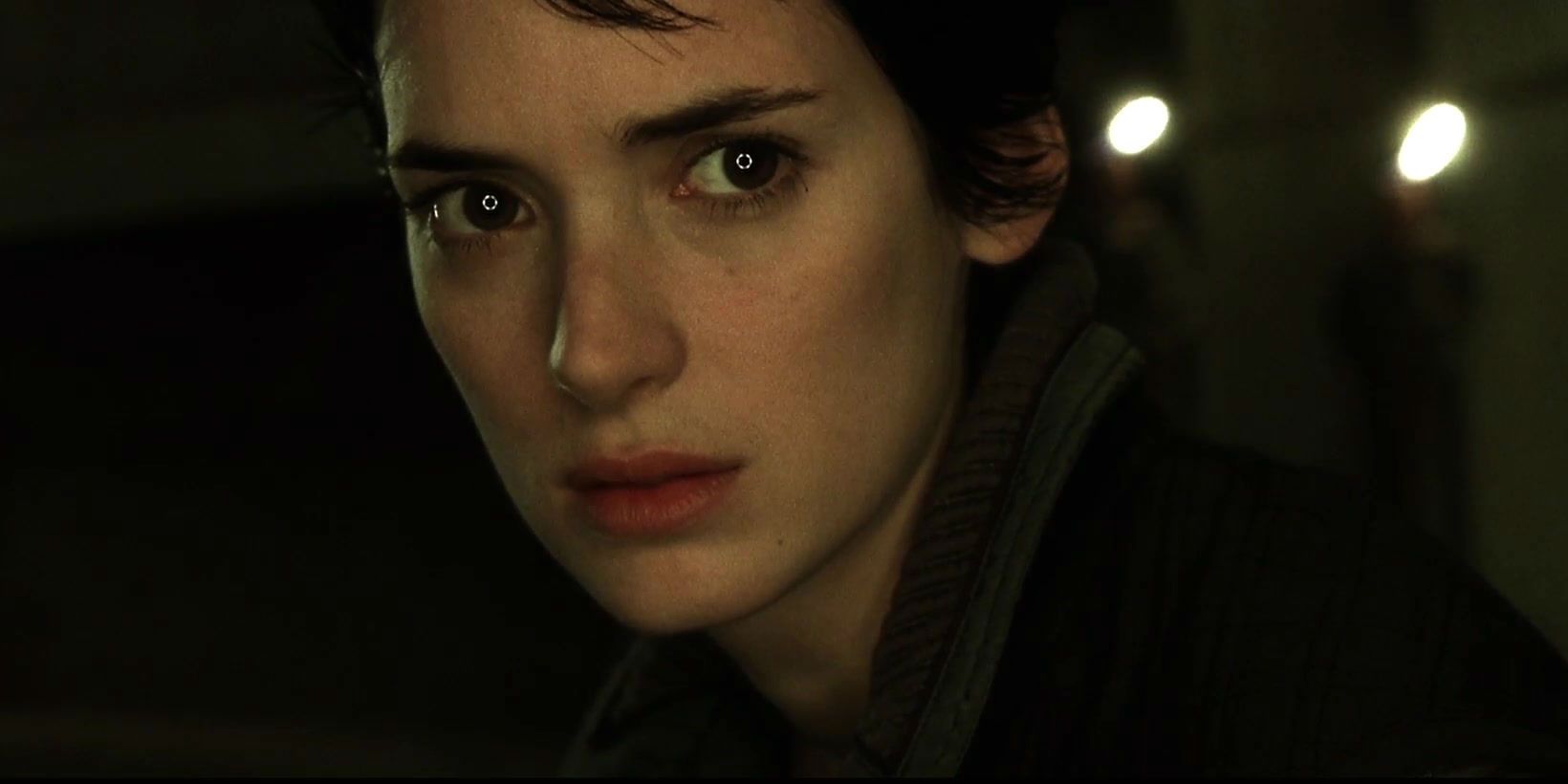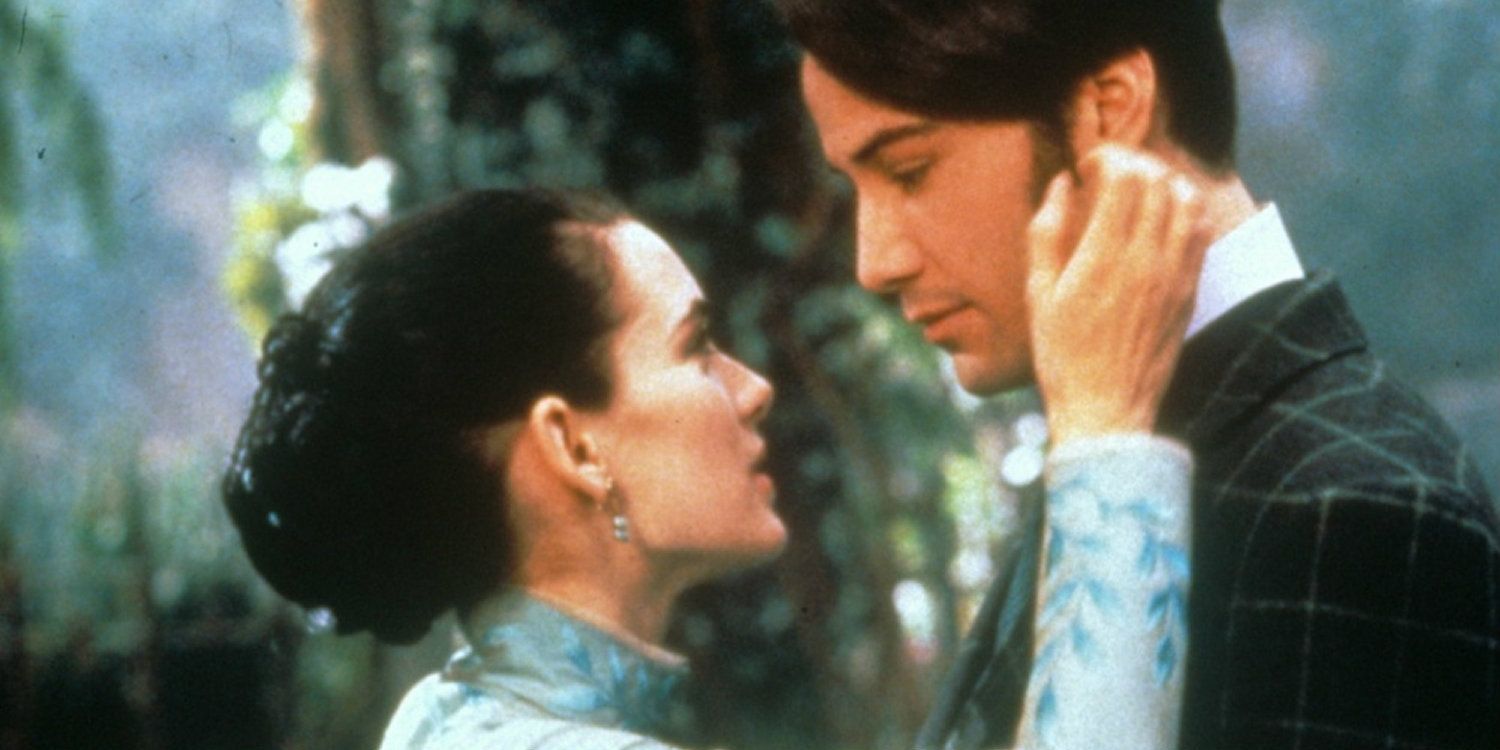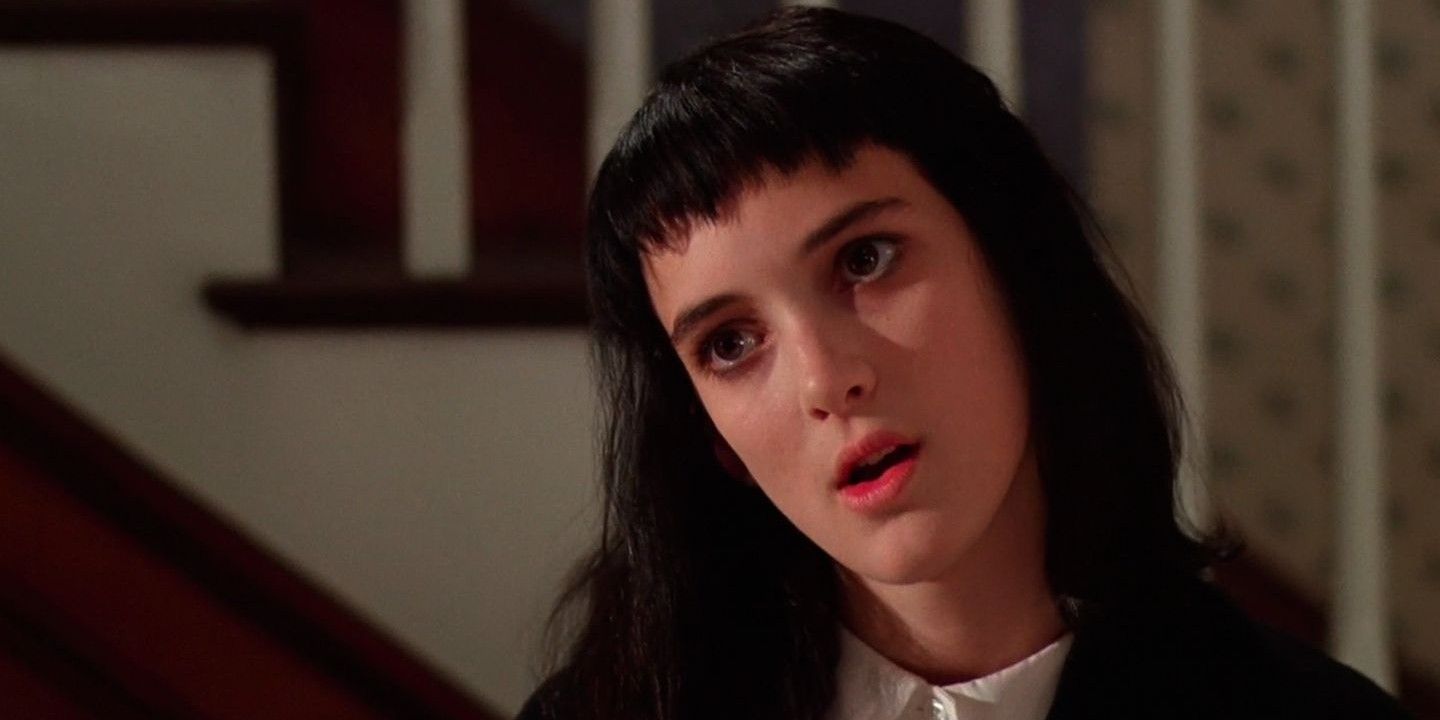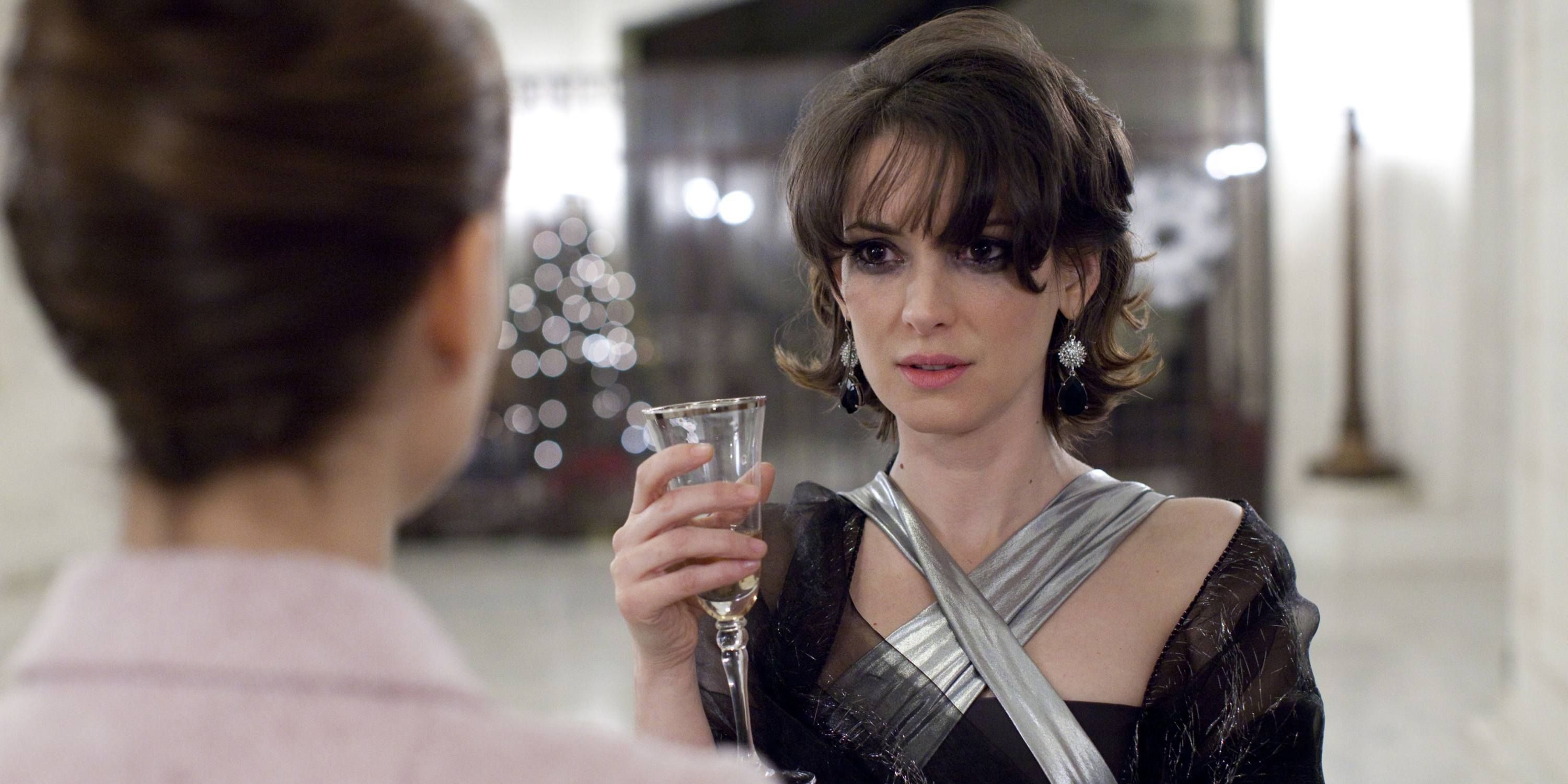While Stranger Things season 4 represents the darkest outing of the Netflix hit so far, the series is far from leading lady Winona Ryder’s first foray into the world of horror. Stranger Things season 4 saw the show lean harder into its horror elements than ever before, with some of the villainous Vecna’s brutal kills calling to mind classic slasher movies like A Nightmare On Elm Street. However, this was not the first time that Stranger Things heroine Winona Ryder starred in a scary project.
The Stranger Things star is no stranger to the darker side of genre cinema, having appeared in numerous horror movies throughout her impressive screen career. Ryder rose to prominence in the late 80s, with her career as a leading lady first peaking in the 90s. At the height of her fame, Ryder was famous for playing troubled heroines in everything from The Crucible to Heathers to Girl, Interrupted.
In addition to these dark dramas, Ryder was not averse to starring in straight-up horror efforts. The iconic actor’s affinity for Gothic melodrama gained her a role in Bram Stoker’s Dracula (alongside Keanu Reeves’ infamously terrible English accent), while a bizarrely miscast Ryder also co-starred alongside Sigourney Weaver as the heroine of the misjudged sequel Alien: Resurrection. Afterward, Ryder appeared in the critically lambasted, largely forgotten Lost Souls before a major role in 2011’s Black Swan signaled a career resurgence for the star. Before any of these parts, however, Ryder first rose to fame thanks to her starring role in Tim Burton’s legendary horror-comedy Beetlejuice, where the young actor managed to hold her own against Michael Keaton’s scenery-chewing, scene-stealing title character.
5. Lost Souls
Cinematographer Janusz Kamiński is a phenomenally talented artist who has worked with some of the most famous directors alive, but a skilled horror director he is not. Buried by the studio due to a scheduling conflict with the popular slasher franchise Scream, 2000’s Lost Souls was a rare dud for Ryder. The religious thriller ambitiously attempted to craft a psychological horror out of a story wherein a group of religious zealots tries to convince a skeptical atheist that he is set to soon become the Antichrist. However, the result is a humdrum, listless horror that fails to provoke thought or fear in the viewer. Fans of the sub-genre would be better off seeking out the same year’s cornier but ultimately more enjoyable offerings Stigmata, End of Days, or even the shamelessly goofy Bless the Child.
4. Alien: Resurrection
The last of the original Alien series, the 1997 sequel Alien: Resurrection might be even worse than the uber-dark Alien 3 upon rewatch. Where Alien 3’s high body count made it hard for viewers to get attached to the rapidly dwindling cast and the movie’s prison setting made its antiheroes challenging to root for, Alien: Resurrection’s bizarrely broad, goofy tone makes its characters impossible to believe in and leaves their predicament feeling corny and cartoony. The sickly green color palette doesn’t help here either, leaving Alien: Resurrection with an ugly pallor while its over-the-top characters argue endlessly throughout scenes that seem to last forever. Ryder does what she can to salvage the messy effort, and Alien: Resurrection is at least stronger than Lost Souls thanks to its faster pace. However, with the weakest monster design in the entire series in the form of the infamous Newborn, Alien: Resurrection remains a tough movie to like and a hard one to recommend.
3. Bram Stoker’s Dracula
Screen veteran Francis Ford Coppola’s interpretation of the legendary vampire novel Dracula might be a bit too campy and over-the-top for some tastes, but it is a love letter to classic monster movies with an impeccable cast. It is rare for a film to be filled with so many stars that the presence of Richard E Grant and Cary Elwes barely even registers, but the stacked cast of Bram Stoker’s Dracula manages this feat, and the movie is filled with compelling, ambitious moments that are undeniably effective. Whether it is the traditional model work that illustrates Harker’s train journey across Europe, Dracula’s shocking attack on the doomed Lucy Westenra, or the over-the-top theatrics of the romantic finale, Bram Stoker’s Dracula is a movie that can’t be accused of subtlety (for better or worse). Before Twilight's movie adaptations made brooding, tragic romantic antiheroes out of vampires, this larger-than-life epic turned Stoker’s original story into an agreeably melodramatic tour-de-force.
2. Beetlejuice
Director Tim Burton’s 1988 horror-comedy Beetlejuice was a perfect calling card for both Ryder’s unique brand of antiheroism and the director’s singular style. As the moody teenage goth Lydia Deetz, Ryder nailed the deadpan charm that would come to define her screen persona in later, more mature critical hits like Heathers, while Keaton's manic energy as the eponymous Beetlejuice balanced perfectly with her soulful performance. Burton would go on to repeat the same trick with his next contemporary fairytale Edward Scissorhands, where Ryder’s real-life ex, Johnny Depp, brought a similarly understated sweetness to an equally misunderstood outcast. However, in terms of sheer fun, Tim Burton’s Beetlejuice remains the helmer’s best balance between horror and comedy to date.
1. Black Swan
Director Darren Aronofsky’s terrifying psychological thriller Black Swan deserved all the acclaim it received upon release, but the movie’s secret weapon is Ryder’s role as an unhinged, over-the-hill dancer. While Natalie Portman nails the part of the movie’s heroine, a stressed ballerina attempting to hold her tenuous grip on reality as pressure builds up around her, Ryder proves a perfect foil to this role. Embittered, venomous, and more energetic than earlier portrayals of washed-up stars, Ryder’s seething older dancer acts as both an embodiment of the heroine’s worst fears and a haunting portrait of her potential future failure. Ryder relishes the role, managing to make Vincent Cassell look subdued in her brief but pivotal appearance. The star is stellar in the supporting part that ironically reignited her career, helping to make Black Swan both Aronofsky’s strongest movie and the Stranger Things actor’s best effort in the genre so far.

